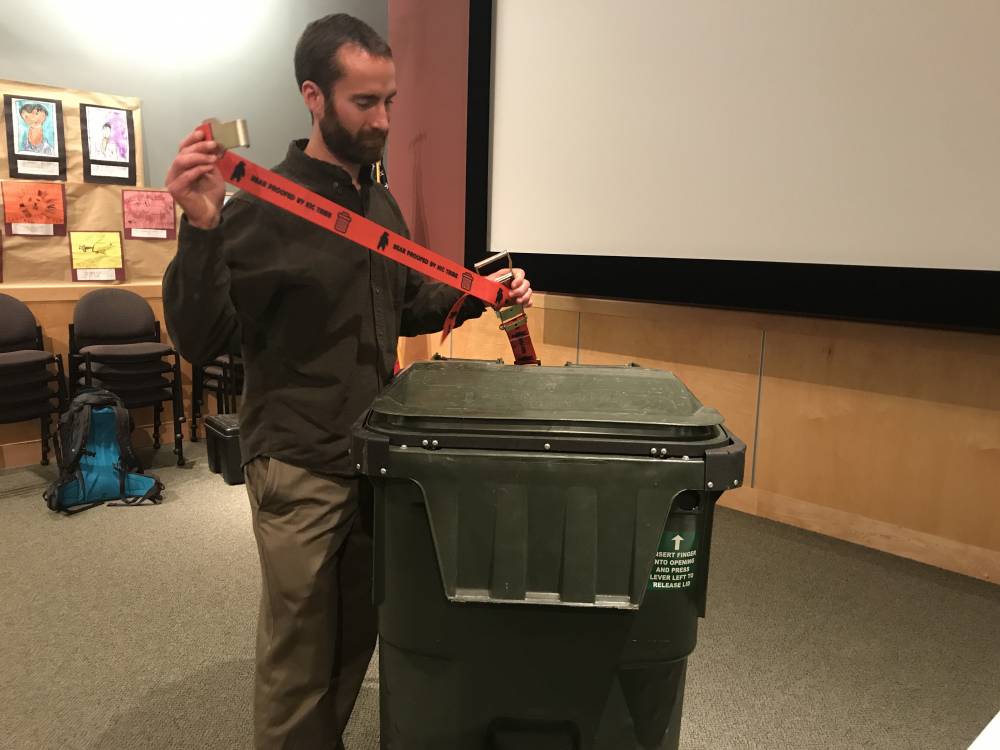
Last Friday, the Alaska Department of Fish and Game held a presentation at the Southeast Alaska Discovery Center to address issues associated with living in an area with a high percentage of bears.
“And the most common question asked by people living in bear country is, ‘what do I do when a bear comes onto my property?’”
That’s from a film called Living in Bear Country, shown at the start of the talk. After the film was a presentation by Ross Dorendorf, Wildlife Management Biologist at the Alaska Department of Fish and Game.
“We’re always going to have bears in Ketchikan. There’s no decoupling us from them—we’re in their habitat,” he said. “But if we can have no attractants available to them, maybe they’ll pass by, we’ll have a good encounter and see a cool animal, and maybe that will be it. That’s what we’re hoping for.”
Dorendorf gave some tips for preventing bears from coming onto your property.
· Use electrified mats, trashcan tops, and fences.
· Hook locks onto trashcans to keep them closed. Consider strapping trashcans to a tree to prevent them from being knocked down and ripped open.
· Lock the doors and windows in your house and cars. Avoid storing food in your vehicle.
· Keep bird feeders tucked away from April through November.
· Feed pets indoors and keep them on a leash.
· Monitor fish smokers, clean grills, and avoid leaving out petroleum products.
· Clear out large patches of brush, such as salmonberry.
One of the audience members was Liesbeth Seaberg, who has lived in Ketchikan for 19 years. She often hikes with her husband and friends. She decided to attend the presentation after encountering a bear last year.
“We were just on a spot and we were just talking,” she said. “And his dog was not on a leash, and he went off in the bushes and suddenly, the dog comes running out and the bear was right behind him. So we made ourselves big, we yelled, and the bear took off. So that was my first bear encounter.”
They apparently did the right thing. Dorendorf advises to remain confident and alert when encountering a bear.
“Stop. Hold your ground. Never ever run from a predator,” he said. “It incites the predatory instinct to run after whatever is running away from him.”
Dorendorf said it’s rare that a bear would charge at you. But if it does, he suggests using your deterrent and hitting the bear in sensitive areas, such as the nose and eyes, with sticks or rocks. He says talking, singing, or listening to music can help prevent bears from approaching you in the first place.
The Alaska Department of Fish and Game will have another presentation in September to further discuss handling defensive, curious, and predatory bear encounters.
For more information about protecting property from bears, visit the Living with Wildlife section of the Alaska Department of Fish and Game website. It has information about living with different species of bears, how to set up electric fences, and more.
If you live within Ketchikan city limits and are having a bear emergency, call the Ketchikan Police Department (907-225-6631). If you live outside the city, call the state troopers (907-225-5118). Call Fish and Game (907-225-2859) if you see bears regularly outside your home.





